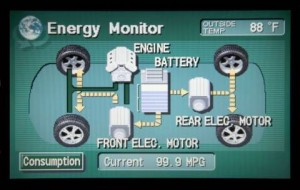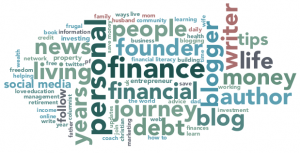MoneyRunner asks:
A friend and I are in the process of writing an operating agreement for an LLC and I’ve got a question for you. We have raised capital for the down payment on an apartment building. I have raised $15,000 ($10,000 my own and $5,000 from family) while my friend has raised $25,000 (all from family). We both have a 50% ownership in the LLC. Once we start to produce income, is it fair to distribute funds according to initial capital invested? Is it even possible to do 50/50?
Firstly, I don’t like buying long-term assets in partnership … times change … longer times change even more 😉
For example, to help a friend out (really!) my wife talked me into buying a half share in a downtown property. In ordinary circumstances it would have been a great, long-term hold.
However, two brothers-in-law had gone into partnership to acquire it and some years later one of the brothers-in-law wanted OUT. The problem was, the other B-in-L couldn’t afford to buy him out, and didn’t want to sell.
These sorts of decisions break up families … and was threatening to do exactly that to this family. Our friend, the third brother-in-law (and the only one of the three NOT involved in the deal) asked us to help out by buying out the one B-in-L who wanted to sell.
And, that’s what we did: bought 50% of a building that we know that we can never sell without causing the same situation to erupt again. My wife talked me into in … that’s my only excuse 😉
But, if you still DO want to go into partnership, here’s what I suggested to MoneyRunner:
All is fair and possible in business and investing … as long as you both agree!You will most likely need a shareholder’s agreement drawn up by your attorney, if the equity and/or profits are not to be split equally.However, a simple way to deal with your situation is:1. Both put in $15k as capital (it makes no difference HOW or WHERE you each got the money).2. Let your friend put in the extra $10k as a loan.3. Agree a rate of interest (say, mortgage rate plus x% e.g. if the current mortgage interest rate that you are paying on the property is 6%, your friend might get 10% for his $10k).4. Split the equity and remaining profits (i.e. rent MINUS mortgage + interest owing to friend + expenses) 50/50Here’s why you will still need a shareholders agreement:– Rules as to how/if/when your friend’s loan is to be repaid,– Rules as to who can force a sale of the property and how you deal with each other’s share in the property in the event of a dispute.
However, there are other ways to enter a ‘partnership’ that stop all of these issues:
My first real-estate purchase was with a friend of mine who found a new condo development in foreclosure; the bank was selling off the individual condos. My friend thought that we would get a better deal if we bought two condos together.
… and, we did!
We negotiated a price of $55k for each condo.
How did we deal with the partnership issue? Simple!
We each bought one codo in our own names. Then, when I stupidly decided to sell (I was still young and reckless, and this was my first ever real-estate purchase), I didn’t need to ask him. I sold it for just over $75k about 2 years later [AJC: But, it would be worth closer to $500k now, 25 years later] … not a bad deal, and no stress on our ‘partnership’.








